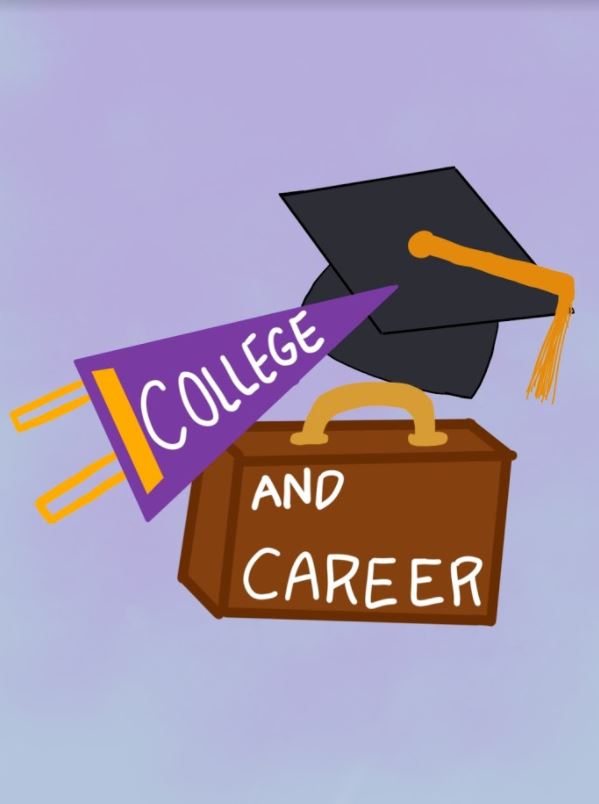College and Career Family Night
March 30, 2018
On Mar. 28, AHS hosted College and Career Family Night, an event where parents and students learned more details on how to navigate their way through high school in order to advance to college. The event lasted from 6:00-8:15 p.m., beginning in the Performing Arts Center (PAC). There, Arun Ponnusamy, the Chief Academic Officer for Collegewise, gave a keynote address highlighting the importance of deliberation when traversing the college journey.
In his speech, Mr. Ponnusamy discussed colleges and their affiliates being “businesses where each student’s information and scores are sold for around $0.43 apiece through associations like the College Board,” which detracts from the personalized experience that many are made to believe exists in college admissions. Oftentimes, students and parents are blinded by the honor of attending a famous Ivy League; those who “follow only these rankings alone feel like it’s all about the reputation” and not the student’s future. Mr. Ponnusamy suggested that students should “definitely create college lists that are catered to their interests” instead of following the rumors and advice they receive from family and friends. It’s also incredibly important to know what you want— if your only specification isto attend an Ivy League school, then it would appear obvious to admissions officers that “you have no idea what you’re doing… though all of these schools are recognized for their academic rigor, they all vary widely in terms of curriculum and environments.” What Mr. Ponnusamy wanted the audience to take away was the insignificance of the academic achievements of the student compared to their personality and experiences; in order to make it onto the campus of your dreams, you have to “stop focusing on numbers, prestige, awards, and AP and other exam scores… colleges hope to find engaged students who will contribute and thrive in the school and community they find themselves in.”
After the speech, everyone was free to leave the PAC to roam around and listen to the breakout sessions that were happening around campus. There were 11 different subjects: how California State Universities work, how the University of California system works, how Pasadena City College works, how to enter college athletics, demystifying the college application process, what highly selective admission is and how to deal with it, financial aid details, how to prepare to enter an arts school, how to pursue an education in STEM subjects, and how standardized testing can affect your future. There was enough time to listen to three of these seminars in their entirety, so attendees had to choose the subjects most relevant to them. There were plenty of supplementary booklets and handouts that were provided for the audiences to take home and evaluate.
The atmosphere in each session helped address common misconceptions among parents and students. The financial aid presentation, which was led by Jon Waldrep, who is part of the California Student Aid Commission’s Institutional Support Unit, explained the difference between scholarships, grants, and loans, and how to make the most of each to create a “financial package”. For students who planned on attending school in California, Cal Grants A, B, and C were laid out in detail for parents and students to figure out how to get the most bang for their buck. Mr. Waldrep pointed out, however, that students “need to know absolutely everything about what [they’re] getting for every form of financial support they sign up for… once you lose track, you’re on your way to losing money very quickly.” Families should balance their assets to fit their situation, and remember that schools’ admissions boards examine tax records from two years before the year of application. The Free Application for Federal Student Aid (FAFSA) is the form that takes priority; it tells each student how much they are eligible to receive in accordance with their situations and college of choice. The FAFSA form is available from Oct. 1 of each year, and is due every Mar. 2. Most schools handle tuition fees differently, so it’s always important to keep an open line of communication with the school’s admissions office.
Another topic that got a lot of attention was the influence that standardized test scores had on the admissions process. Sara Berard, the Managing Director of Compass Education Group, spoke about the infamous PSATs, SATs, and the ACTs, how each score is used by colleges, and how the student can take steps to ensure they reach their personal best when the final test date rolls around. Mrs. Berard highlighted the differences between the SATs and ACTs: “Each test is based on a different grading scale; while both have an essay portion, the ACTs have an extra science section, where students must interpret data in a short amount of time. It’s very important that students take as many practice tests as possible to determine which format they are most comfortable with, since colleges don’t have a preference for either the SATs or the ACTs, picking the test where you are already ahead can push you ahead just enough to get you into the college of your choice.” She also encouraged students to focus on fundamental content, as well as testing strategies, so that there’s less room for error in the exam room. Lastly, she recommended using sites such as Khan Academy or the College Board site to work on your weaknesses, building up your abilities to eventually face the test.
All in all, College and Career Family Night gave a chance for AHS to clarify on the many factors that go into applying for higher education. With more events like these, signing up for colleges won’t be such a daunting task for AHS families.

